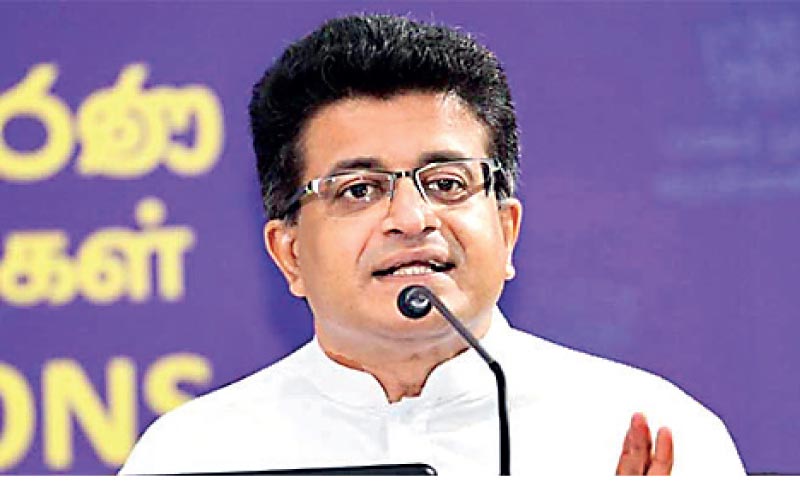Monday Feb 23, 2026
Monday Feb 23, 2026
Monday, 28 April 2025 02:25 - - {{hitsCtrl.values.hits}}

PHU Leader and former Minister Udaya Gammanpila
Pivithuru Hela Urumaya (PHU) Leader and former Minister Udaya Gammanpila on Saturday called for a careful reassessment of Sri Lanka’s energy sector agreements with India, drawing attention to recent tensions between India and Pakistan over the ‘Indus Waters Treaty.’
Speaking to the media, Gammanpila highlighted India’s threat to suspend the historic Indus Waters Treaty, a pact that has survived decades of conflict, following the tragic terrorist attack in Kashmir that claimed the lives of 26 tourists.
He suggested that such developments should serve as a valuable lesson for Sri Lanka when considering deeper energy connectivity with its neighbour.
Gammanpila shared with the public copies of two Memoranda of Understanding (MoUs) signed during Indian Prime Minister Narendra Modi’s visit earlier this month, concerning the interconnection of power grids and the establishment of a multi-product petroleum pipeline between the two countries.
He urged a thoughtful review of these agreements in light of recent events.
Gammanpila also pointed to the tripartite MoU signed among Sri Lanka, India, and the UAE for developing Sri Lanka as an energy hub. Notably, this agreement was signed in English, Hindi, and Arabic—marking a departure from the earlier tradition of signing documents in English only, a symbolic shift that he said should be reflected upon.
Drawing parallels with the India-Pakistan situation, Gammanpila observed that Pakistan, as a riparian State, relies on six rivers originating from India for its water needs—a reliance it did not voluntarily choose. In contrast, Sri Lanka is now voluntarily considering deep dependence on India for critical energy resources.
“If water, the most basic human necessity, can become a tool of political leverage in times of tension—it is important that we think carefully before creating similar dependencies for electricity and petroleum,” he said.
“Our decisions must be guided by long-term national interests, ensuring that Sri Lanka’s energy security is never compromised—no matter how strong our friendships may seem today,” he stressed.
The Indus Waters Treaty, signed in 1960, allocated the three eastern rivers of the Indus basin to India, and 80% of the three western rivers to Pakistan.
Despite enduring two wars and longstanding hostility, the treaty stood as a testament to the possibility of cooperation.
The current strain, Gammanpila noted, reminds smaller countries like Sri Lanka to tread wisely when forging critical cross-border partnerships.